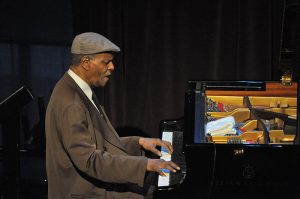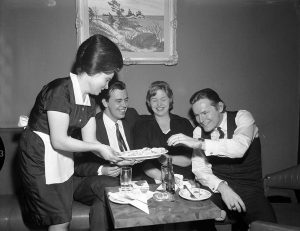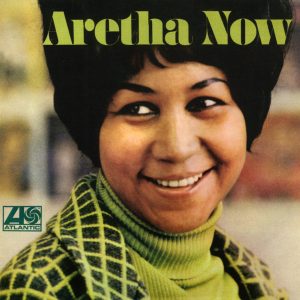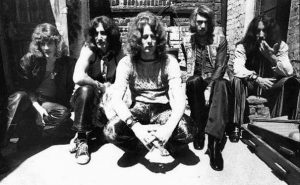]This will be the intro copy. This will be the intro copy. This will be the intro copy. This will be the intro copy. This will be the intro copy. This will be the intro copy. This will be the intro copy. This will be the intro copy. This will be the intro copy. This will be the intro copy. This will be the intro copy. This will be the intro copy. This will be the intro copy. This will be the intro copy. This will be the intro copy. This will be the intro copy. This will be the intro copy. This will be the intro copy. This will be the intro copy. This will be the intro copy. This will be the intro copy. This will be the intro copy. This will be the intro copy. This will be the intro copy. This will be the intro copy. This will be the intro copy. This will be the intro copy.
[divider]Number Ten[/divider] [dropcap size=big]J[/dropcap]ohn R. “Johnny” Cash (February 26, 1932 – September 12, 2003) was a singer-songwriter, actor, and author,[2] widely considered one of the most influential American musicians of the 20th century.[3] Although primarily remembered as a country icon, his genre-spanning songs and sound embraced rock and roll, rockabilly, blues, folk, and gospel. This crossover appeal won Cash the rare honor of multiple induction in the Country Music, Rock and Roll, and Gospel Music Halls of Fame. (February 26, 1932 – September 12, 2003) was a singer-songwriter, actor, and author,[2] widely considered one of the most influential American musicians of the 20th century.[3] Although primarily remembered as a country icon, his genre-spanning songs and sound embraced rock and roll, rockabilly, blues, folk, and gospel. This crossover appeal won Cash the rare honor of multiple induction in the Country Music, Rock and Roll, and Gospel Music Halls of Fame.
[divider]Number Nine[/divider]
[dropcap size=big]C[/dropcap]ash was known for his deep bass-baritone voice,[a][5] distinctive sound of his Tennessee Three backing band, a rebelliousness[6][7] coupled with an increasingly somber and humble demeanor,[4] free prison concerts,[8][9][page needed] and trademark look, which earned him the nickname “The Man in Black”.[b] He traditionally began his concerts with the simple “Hello, I’m Johnny Cash.”[c], followed by his signature “Folsom Prison Blues”. was known for his deep bass-baritone voice,[a][5] distinctive sound of his Tennessee Three backing band, a rebelliousness[6][7] coupled with an increasingly somber and humble demeanor,[4] free prison concerts,[8][9][page needed] and trademark look, which earned him the nickname “The Man in Black”.[b] He traditionally began his concerts with the simple “Hello, I’m Johnny Cash.”[c], followed by his signature “Folsom Prison Blues”.[divider]Number Eight[/divider]
[dropcap size=big]M[/dropcap]uch of Cash’s music echoed themes of sorrow, moral tribulation and redemption, especially in the later stages of his career.[4][12] His best-known songs included “I Walk the Line”, “Folsom Prison Blues”, “Ring of Fire”, “Get Rhythm” and “Man in Black”. He also recorded humorous numbers like “One Piece at a Time” and “A Boy Named Sue”; a duet with his future wife, June Carter, called “Jackson”; and railroad songs including “Hey, Porter” and “Rock Island Line”.[13] During the last stage of his career, Cash covered songs by several late 20th-century rock artists, most notably “Hurt” by Nine Inch Nails. of Cash’s music echoed themes of sorrow, moral tribulation and redemption, especially in the later stages of his career.[4][12] His best-known songs included “I Walk the Line”, “Folsom Prison Blues”, “Ring of Fire”, “Get Rhythm” and “Man in Black”. He also recorded humorous numbers like “One Piece at a Time” and “A Boy Named Sue”; a duet with his future wife, June Carter, called “Jackson”; and railroad songs including “Hey, Porter” and “Rock Island Line”.[13] During the last stage of his career, Cash covered songs by several late 20th-century rock artists, most notably “Hurt” by Nine Inch Nails. [divider]Number Seven [/divider] In March 1935, when Cash was three years old, the family settled in Dyess, Arkansas. He started working in cotton fields at age five, singing along with his family while working. The family farm was flooded on at least two occasions, which later inspired him to write the song “Five Feet High and Rising”.[20][page needed] His family’s economic and personal struggles during the Great Depression inspired many of his songs, especially those about other people facing similar difficulties.[divider]Number Six[/divider]
Cash was very close to his older brother, Jack.[21] In May 1944, Jack was pulled into a whirling head saw in the mill where he worked and was almost cut in two. He suffered for over a week before he died on May 20, 1944, at age 15.[20][page needed] Cash often spoke of the horrible guilt he felt over this incident. According to Cash: The Autobiography, his father was away that morning, but he and his mother, and Jack himself, all had premonitions or a sense of foreboding about that day, causing his mother to urge Jack to skip work and go fishing with his brother. Jack insisted on working, as the family needed the money. On his deathbed, Jack said he had visions of heaven and angels. Decades later, Cash spoke of looking forward to meeting his brother in heaven.[7]
[divider]Number Five[/divider]
Cash’s early memories were dominated by gospel music and radio. Taught guitar by his mother and a childhood friend, Cash began playing and writing songs at the age of twelve. When Cash was young, he had a high tenor voice, before becoming a bass-baritone.[22] In high school he sang on a local radio station; decades later he released an album of traditional gospel songs, called My Mother’s Hymn Book. He was also significantly influenced by traditional Irish music that he heard performed weekly by Dennis Day on the Jack Benny radio program.[23][page needed] [divider]Number Four[/divider]
Cash enlisted in the United States Air Force on July 7, 1950.[24] After basic training at Lackland Air Force Base and technical training at Brooks Air Force Base, both in San Antonio, Texas, Cash was assigned to the 12th Radio Squadron Mobile of the U.S. Air Force Security Service at Landsberg, Germany as a Morse Code Intercept Operator for Soviet Army transmissions.[25] It was there he created his first band, named “The Landsberg Barbarians”.[26] He was the first radio operator to pick up the news of the death of Joseph Stalin.[27] He was honorably discharged as a Staff Sergeant on July 3, 1954, and returned to Texas.[28]
[divider]Number Three[/divider]
On July 18, 1951, while in Air Force training, Cash met 17-year-old Vivian Liberto at a roller skating rink in her native San Antonio. They dated for three weeks, until Cash was deployed to Germany for a three-year tour. During that time, the couple exchanged hundreds of pages of love letters.[29] On August 7, 1954, one month after his discharge, they were married at St. Ann’s Roman Catholic Church in San Antonio. The ceremony was performed by her uncle, Father Vincent Liberto. They had four daughters: Rosanne, Kathy, Cindy and Tara. Liberto stated that Cash’s drug and alcohol abuse as well as constant touring, affairs with other women, and his close relationship with June Carter led her to file for divorce in 1966.
[divider]Number Two[/divider]
On July 18, 1951, while in Air Force training, Cash met 17-year-old Vivian Liberto at a roller skating rink in her native San Antonio. They dated for three weeks, until Cash was deployed to Germany for a three-year tour. During that time, the couple exchanged hundreds of pages of love letters.[29] On August 7, 1954, one month after his discharge, they were married at St. Ann’s Roman Catholic Church in San Antonio. The ceremony was performed by her uncle, Father Vincent Liberto. They had four daughters: Rosanne, Kathy, Cindy and Tara. Liberto stated that Cash’s drug and alcohol abuse as well as constant touring, affairs with other women, and his close relationship with June Carter led her to file for divorce in 1966.








Add Comment